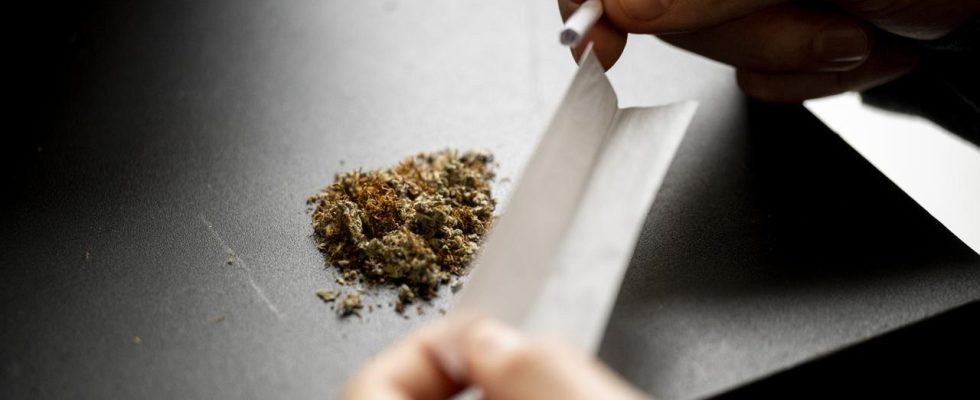Health Minister Lauterbach presented his key issues paper on the legalization of cannabis in April. Since then, membership in cannabis clubs has grown exponentially. And now?
“Our membership numbers have exploded. On the first day after the key issues paper was published, we had 70 inquiries from new members,” says Julen Merino. He is the club chairman of the Cannabis Social Club (CSC) Stuttgart. Abroad – for example in Spain or Uruguay – people organize in CSCs to grow cannabis for their own use. In Germany this is not yet legal. The Stuttgart club has therefore organized demonstrations and campaigned for the legalization of cannabis.
By April, the association still had around 50 members. But since it was announced that clubs should play a crucial role in the legalization of cannabis, nothing has been the same. New membership applications arrive every day – even from all over Germany, says Merino. “Most of them come from the Stuttgart region, but there are also people from Bavaria or Leipzig. And there’s everything in the age groups too.”
Central element of legalization
It is not without reason that the interest in the clubs is enormous. According to the plans of Federal Minister of Health Karl Lauterbach, the clubs should be able to legally grow cannabis and distribute it to their members: a maximum of 25 grams per day and a total of 50 grams per month. At the same time, however, the number of members is to be limited to 500. And there aren’t that many clubs in Germany yet. So there is a lot of pressure to secure a place before legalization.
The demand is huge, but can Cannabis Social Clubs even meet it? Merino has his doubts: “The comprehensive supply by CSCs will not work. The number of members is limited to 500 and the requirements for new clubs are simply too strict.” With the current plans, one cannot dry up the black market for cannabis.
Strained Cannabis
Combating the black market and health protection are among the most important arguments for legalization. Because the products on offer have changed massively in recent years, says Franziska Maubach from the Faculty of Law at the University of Tübingen: “Just stretched and heavily contaminated cannabis – which can contain glass splinters, hairspray and herbs, for example – is simply dangerous for the consumer .” In addition, the effectiveness of black market cannabis has increased massively in recent years – with unpredictable risks for the health of consumers.
In order to contain the dangerous black market, the Cannabis Social Clubs are definitely a good solution, says Maubach. However, the price of legal cannabis should not be higher. “But it’s also about easy access to legal cannabis. The lower the threshold, the more likely it is that the black market can be squeezed out.” She therefore demands that there should also be state-regulated specialist shops for the sale of cannabis in the future. Otherwise the legal supply could hardly cover the demand on the market.
model tests below scientific accompaniment
Julen Merino from the Cannabis Social Club Stuttgart also wants state-regulated shops and comprehensive legalisation: “The weed on the street is contaminated and the money goes to the black market. That can’t be the solution!”
But in Lauterbach’s key issues paper, the specialist shops are only intended as pilot projects with scientific support. Regular sales through specialist shops would contradict international and EU law.
And so the Cannabis Social Club in Stuttgart initially only plans to grow their own cannabis for the members. Together with the city administration and the police, they are currently looking for a suitable location. Not so easy – because the cultivation and distribution should not take place near schools, kindergartens and playgrounds.

